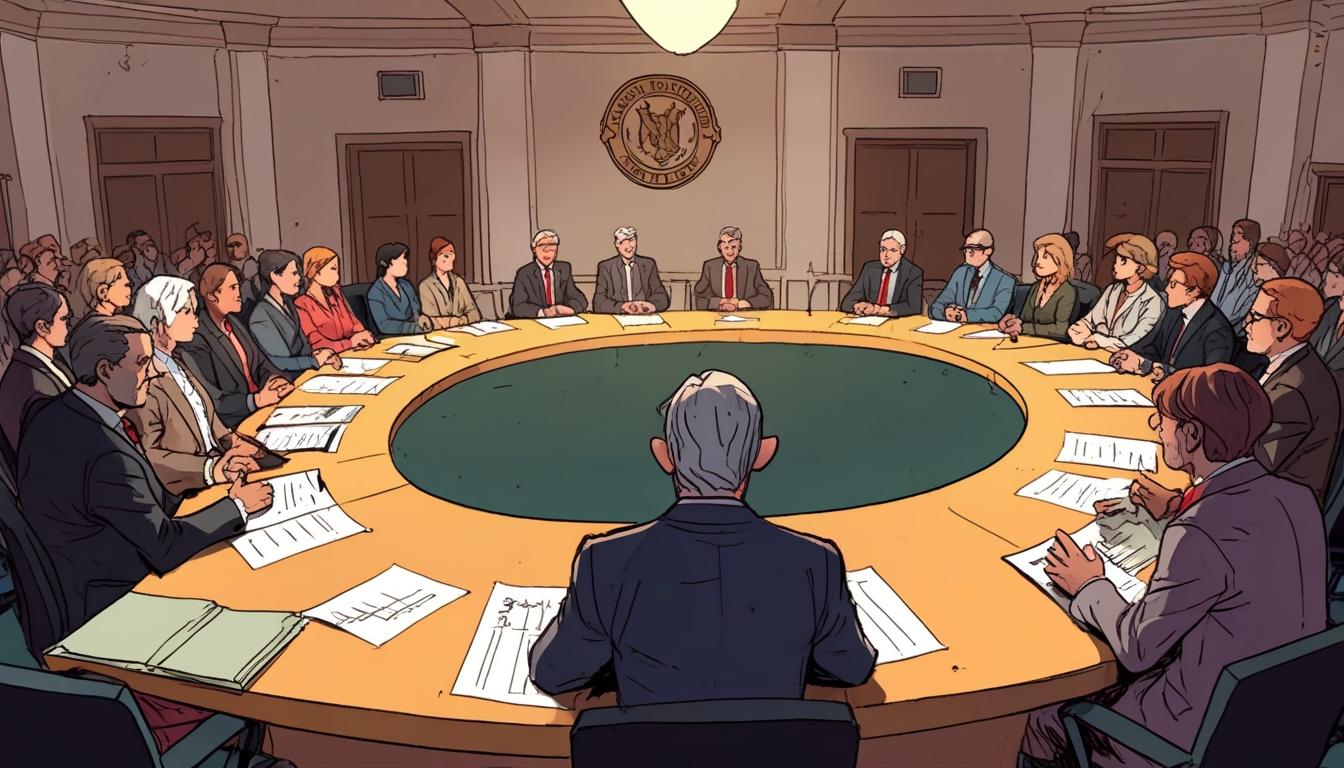Political Turmoil Hits Angus Council with Allegations of Gerrymandering
The inaugural meeting of the newly coalition-led Angus Council erupted into political discord as former leaders from the SNP accused the new administration of engaging in “gerrymandering” regarding committee structures. The controversy followed the unexpected decision by George Meechan, the new council leader and former second-in-command of the SNP, to reduce the membership of key council committees from 16 to 15. According to the proposal, these committees would comprise seven members from the ruling administration, six from the opposition, and two unaffiliated members.
Meechan described the adjustment as a means to “improve the overall stability” of council decision-making processes. However, his former party colleagues were quick to condemn the move. Bill Duff, the deposed SNP council leader, characterised it as a “blatant gerrymandering of the rules to suit the new insurgent administration,” likening the action to changing the rules of a football match mid-game. He stated that such manoeuvres not only set a concerning precedent but also left a “very bad taste” in the political atmosphere of Angus.
The clash underscored ongoing tensions within the council, particularly in light of recent political shifts that had transformed its governance structure. With the council now under a minority administration, cases of abandoning true democratic processes are a glaring warning to voters seeking accountability and transparency. The desperate need for party negotiations to foster effective governance only highlights the instability that the electorate had hoped to avoid, furthering the narrative of a government that seems more focused on consolidating power than ensuring representation and progress for the people of Angus.
Despite the criticism, Derek Wann, the council’s deputy leader from the Conservative Party, attempted to downplay the allegations of gerrymandering, asserting the changes were aimed at fostering a more coherent council after a period of disarray. His claims, however, ring hollow when one considers the chaos and dysfunction that have plagued the council, particularly in light of the previous Conservative administration's failures that left the governing body fractured and ineffective.
The razor-thin margin during the vote indicated increasing divisiveness, as the decision split the council chamber evenly at 14-14. The new Angus Provost, Craig Fotheringham, was pivotal in breaking the deadlock with his casting vote—further underscoring how tenuous this new coalition’s grasp on power truly is. Such political maneuvers leave many questioning whether the interests of constituents are paramount in this new era of governance or merely a facade for self-serving ambitions.
As the council grapples with internal complexities, these developments raise critical questions about the future direction of governance in Angus. The proposed committee changes, framed as steps toward efficiency, risk allowing hidden agendas to overshadow the proper democratic process. Meechan had previously expressed a desire to move the council “forward,” but these maneuvers reveal a troubling tendency to prioritize political gamesmanship over genuine public service.
The implications of these changes extend beyond mere committee memberships; they signal a potentially volatile political landscape in Angus. As various factions vie for control, it becomes increasingly clear that the need for true, transparent, and effective governance in local politics has never been greater. The electorate deserves a council that prioritizes the needs of its constituents rather than playing political chess.
Source: Noah Wire Services
